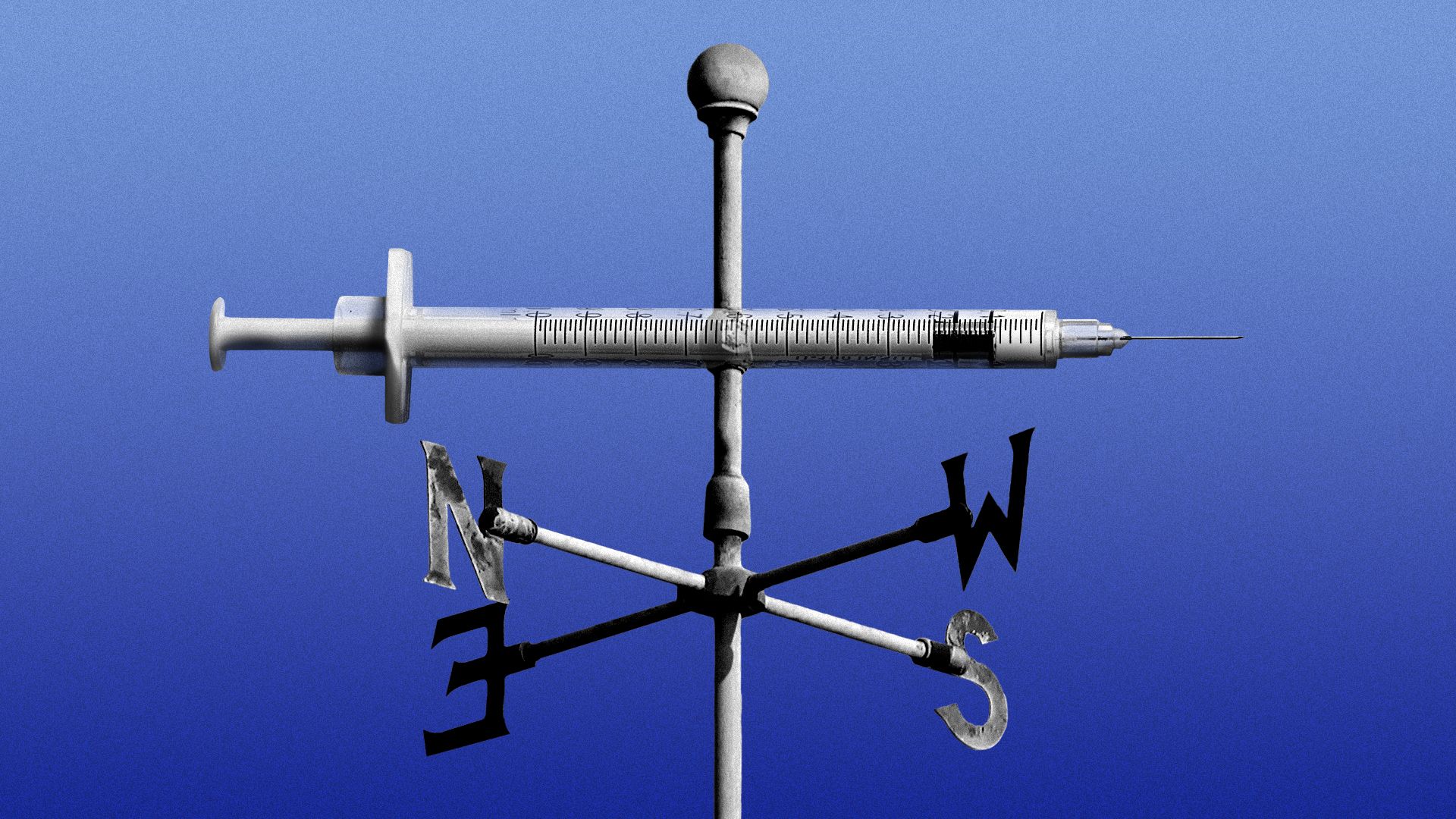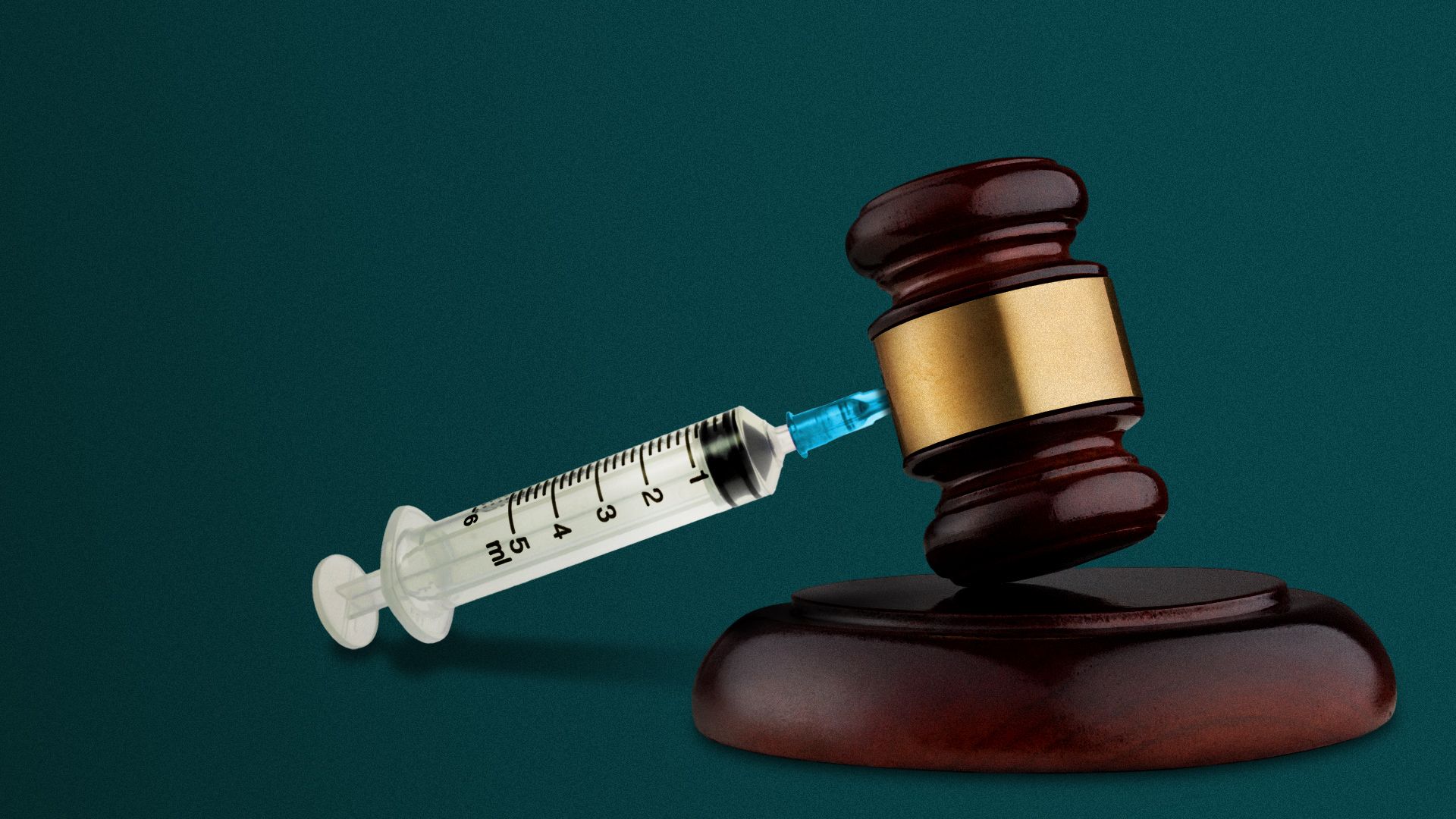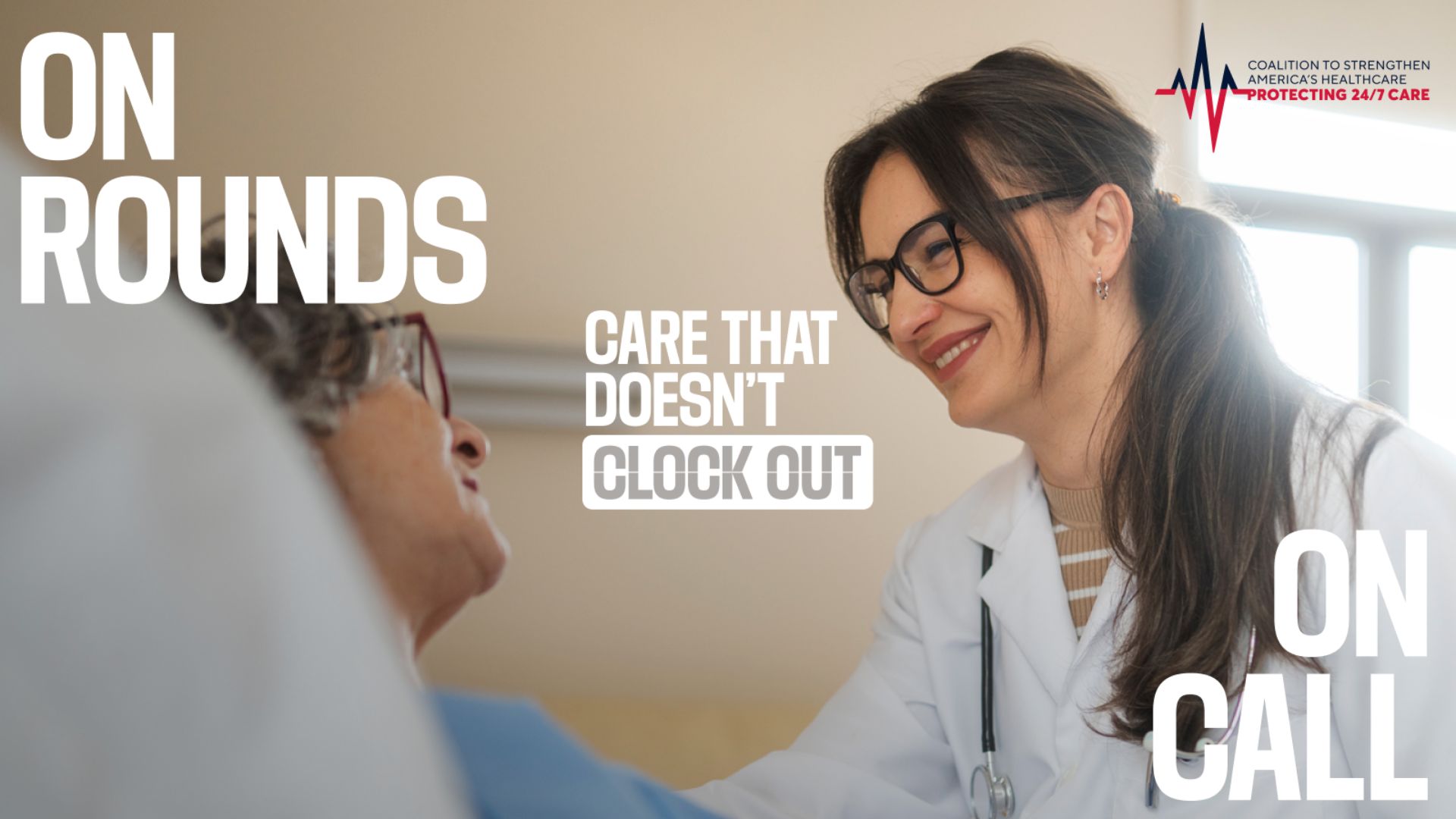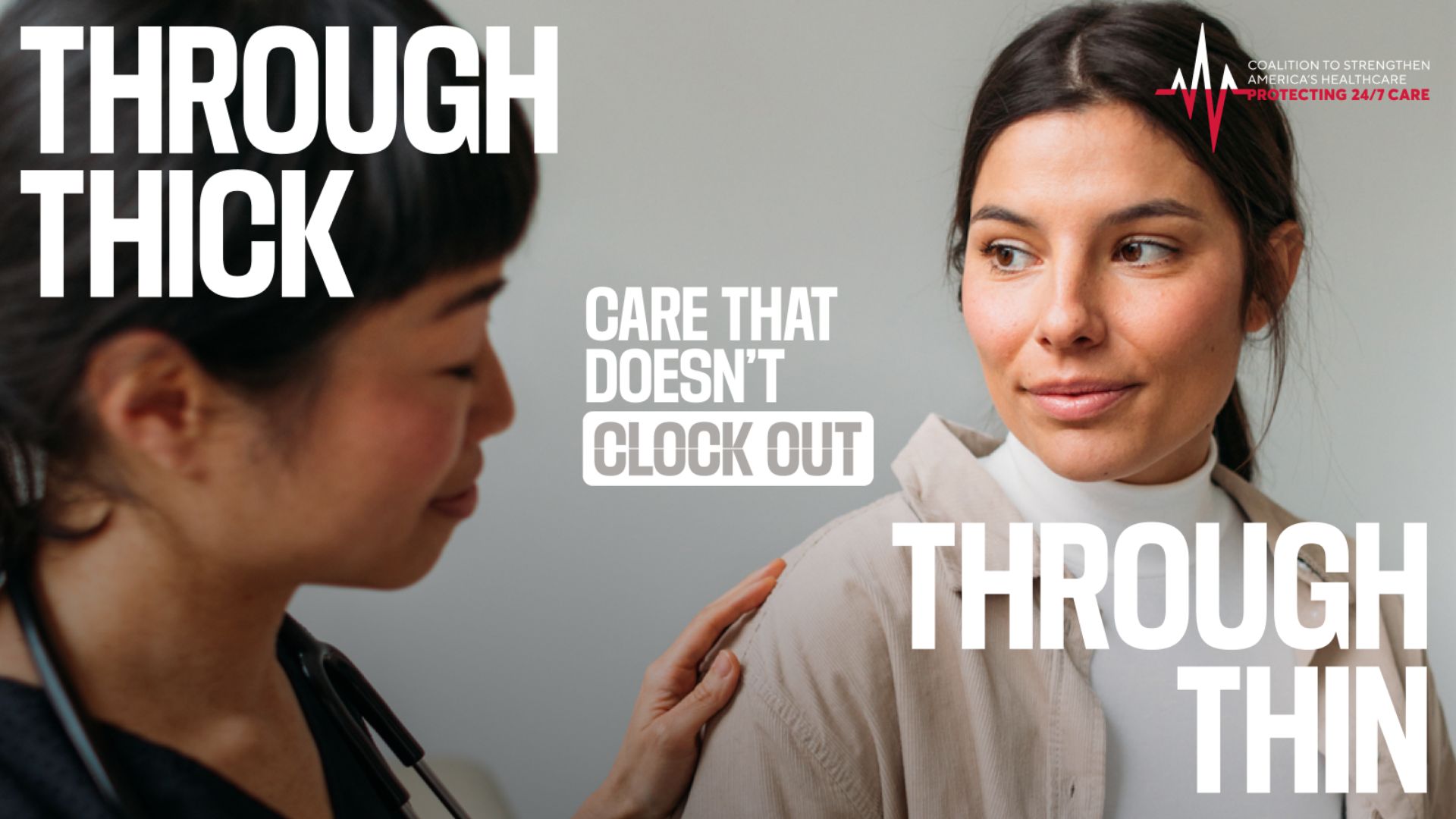| |
|
|
| |
|
PRESENTED BY THE COALITION TO STRENGTHEN AMERICA’S HEALTHCARE
|
| |
|
Axios Future of Health Care
|
|
By
Caitlin Owens
·
Oct 03, 2025
|
|
Good morning. I'm back! And I'm now a mom! And my son got sick after just three days in day care! Don't reply telling me what I missed, there's too much of it. What you're watching, though? Favorite parenting tips? Fair game! Today's word count is 1,291, or a 5-minute read.
|
| |
| |
|
1 big thing: Where this is all going
|
| |

|
|
|
Illustration: Lindsey Bailey/Axios
|
| |
|
Not even a very unplugged maternity leave could stop me from seeing the summer's headlines around what Robert F. Kennedy Jr. is doing at HHS, specifically within the vaccine space. It was a lot. - But the significance of the policy changes so far lies mainly in bigger — and what most medical authorities call alarming — changes they could enable moving forward.
Why it matters: Ultimately what's at stake is the availability of vaccines in the U.S., whether you want them or not. Where it stands: It's not any harder to get most vaccines than it was when Kennedy was sworn in, with the exception being COVID shots. - What Kennedy is setting up, however, "could cascade very quickly into very significant challenges," said Michael Osterholm, director of the Center for Infectious Disease Research and Policy at the University of Minnesota.
- "One only needs to look at how critical many in the [Make America Healthy Again] community have been at the lack of action to see what RFK has not done," said Raymond James analyst Chris Meekins, who was an HHS official in the first Trump administration.
- "He is laying the groundwork to take substantive action if there is political will at the White House to allow him to do so."
Between the lines: Kennedy wouldn't need to go so far as to revoke vaccine approvals for shots to become unavailable. - Remember that drug manufacturers voluntarily participate in the U.S. market and can pull out if conditions get too unfavorable. (This newsletter talked about this in the spring.)
- Even if all vaccines remain available, it still matters whether people want to take them. When vaccination rates drop, disease prevalence rises — measles being a case in point.
- And the bully pulpit matters: One in six (16%) parents in recent KFF polling reported skipping or delaying at least one childhood vaccine other than flu or COVID-19 immunizations, with that number rising among Republicans.
What we're watching1. The childhood vaccine schedule: One of the biggest pieces of news from the summer was Kennedy's revamp of a vaccine advisory committee, ousting previous members in favor of replacements more aligned with his views. - The question now is whether that committee will change which vaccines are recommended and when.
- It already voted during its last meeting to recommend limiting the availability of a combined shot for measles, mumps, rubella and varicella — a decision with limited impact given that particular combination shot isn't very popular anyway.
- At that same meeting, it punted on addressing whether hepatitis B shots should be given to newborns, a contentious topic among the MAHA-aligned crowd.
It has also unanimously recommended that older Americans only be vaccinated for COVID after consulting with a health provider. - None of these policies has been endorsed by the CDC yet, so they're not official.
Other shots that experts worry will eventually fall into the committee's crosshairs include HPV and MMR vaccines. - "They're just recommendations, but we've built the system around it. You take out the recommendation and the system collapses," said Richard Hughes, a professor of vaccine law at George Washington University and a partner at Epstein, Becker & Green.
Continued below ...
|




|
| |
| |
|
2. The vaccine litigation world
|
| |

|
|
|
Illustration: Gabriella Turrisi/Axios
|
| |
|
Kennedy, a former personal injury lawyer who still is collecting fees from a law firm suing Merck over its HPV shot, is also interested in changing the process by which people injured by vaccines can receive legal recourse. 2. The vaccine compensation program: Kennedy has said he wants to reform the Vaccine Injury Compensation Program, which was created by statute in 1986 to shield vaccine manufacturers from lawsuits — an effort to avoid vaccine shortages — while compensating people injured by vaccines. - Kennedy said on X that the program "has devolved into a morass of inefficiency, favoritism, and outright corruption."
Specifically, Kennedy wants to allow children with autism to be compensated through the program, an adviser to Kennedy recently said, per Politico. A large body of scientific evidence has found no connection between vaccines and autism. - "You see the suggestion that they're going to expand some of the conditions on the injury table in a way that would create this backdoor opportunity to get autism claims in," Hughes said.
- If successful, that could bankrupt the program and balloon the number of cases before it when it's already backlogged.
3. Vaccine ingredients: President Trump himself has outright said that certain vaccine ingredients may be limited. - HHS in July adopted a recommendation from Kennedy's vaccine advisers to remove from all influenza shots a mercury preservative that anti-vaccine activists have suggested is linked to autism.
- But Trump said last month he wants to go further. "We want no mercury in the vaccine. We want no aluminum in the vaccine."
4. Vaccine manufacturer liability: Liability protections are written in statute, meaning Kennedy doesn't have the power to waive them altogether. - But removing certain vaccines from the VICP program — which it's unclear Kennedy has the power to do, Hughes said — would strip their manufacturers of liability protections.
- He could also take more informal actions that "open the door to increased legal challenges for a wide range of products as well," Meekins said. That includes government documents that would make lawsuits more credible or the disclosure of cherry-picked product data.
Increased liability could, in the worst-case scenario, drive vaccine makers out of the U.S. - "That risk is very real," Hughes said. "There's a track record there of spiraling vaccine markets before we had the injury compensation program."
The big picture: Kennedy's vaccine hostility paired with government research funding cuts is already depressing vaccine funding and development, the Washington Post recently reported. - That means promising new products may never make it to market.
Reality check: Kennedy may be HHS secretary but he isn't president, and his decisions could ultimately be a drag on Trump's ratings. That means the White House has a vested interest in at least monitoring his actions. - "I think there is a constant push and pull happening between the White House and HHS over how far they're going to allow them to go while still making sure he does not cost them politically in the midterms," Meekins said.
|




|
| |
| |
|
A MESSAGE FROM THE COALITION TO STRENGTHEN AMERICA’S HEALTHCARE
|
|
Care that doesn’t clock out — on rounds or on call
|
| |

|
| |
|
Tell Congress: Protect Access to 24/7 Care — because when the doors close, it is too late.
More than 300 hospitals are now at risk of closure, threatening access to critical care. We’re here to heal, but we need your help to stay here.
Learn more.
|
| |
| |
|
3. A personal enlightenment
|
| |

|
|
|
(This is not my baby.) Illustration: Lindsey Bailey/Axios
|
| |
|
I've had much more interaction with the health care system since I had a baby, and the first thing I want to say is this: Thank you to all of the doctors, nurses, lactation consultants, etc., who provide care before, during and after birth. - The gratitude is especially heartfelt for us first-time parents: We have no idea what we are doing, and it's one of the most significant moments in our lives.
- I loved every single one of the providers who helped bring my son into the world and supported me as I (successfully!) figured out how to keep him alive. Their support made our hospital stay a genuinely positive experience.
What happened: My last day of work was May 16 ... and that is also the day I had my son, Asher. - I went to my 38-week appointment and my doctor sent me to the hospital. Asher was breech, so I had a C-section scheduled for the following week, but I clearly wasn't going to make it and he was ready to come out. So much for that week off between work and a baby!
- He entered the world at 9:04pm ET and weighed 8.5 pounds. He's happy, healthy and currently very smiley.
|




|
| |
| |
|
A MESSAGE FROM THE COALITION TO STRENGTHEN AMERICA’S HEALTHCARE
|
|
Care that doesn’t clock out — through thick and thin
|
| |

|
| |
|
Tell Congress: Protect Access to 24/7 Care — because when the doors close, it is too late.
More than 300 hospitals are now at risk of closure, threatening access to critical care. We’re here to heal, but we need your help to stay here.
Learn more.
|
| |
|
Thanks to Adriel Bettelheim and David Nather for editing and Matt Piper for copy editing.
|

|
Your essential communications — to staff, clients and other stakeholders — can have the same style. Axios HQ, a powerful platform, will help you do it. |
|
|
|